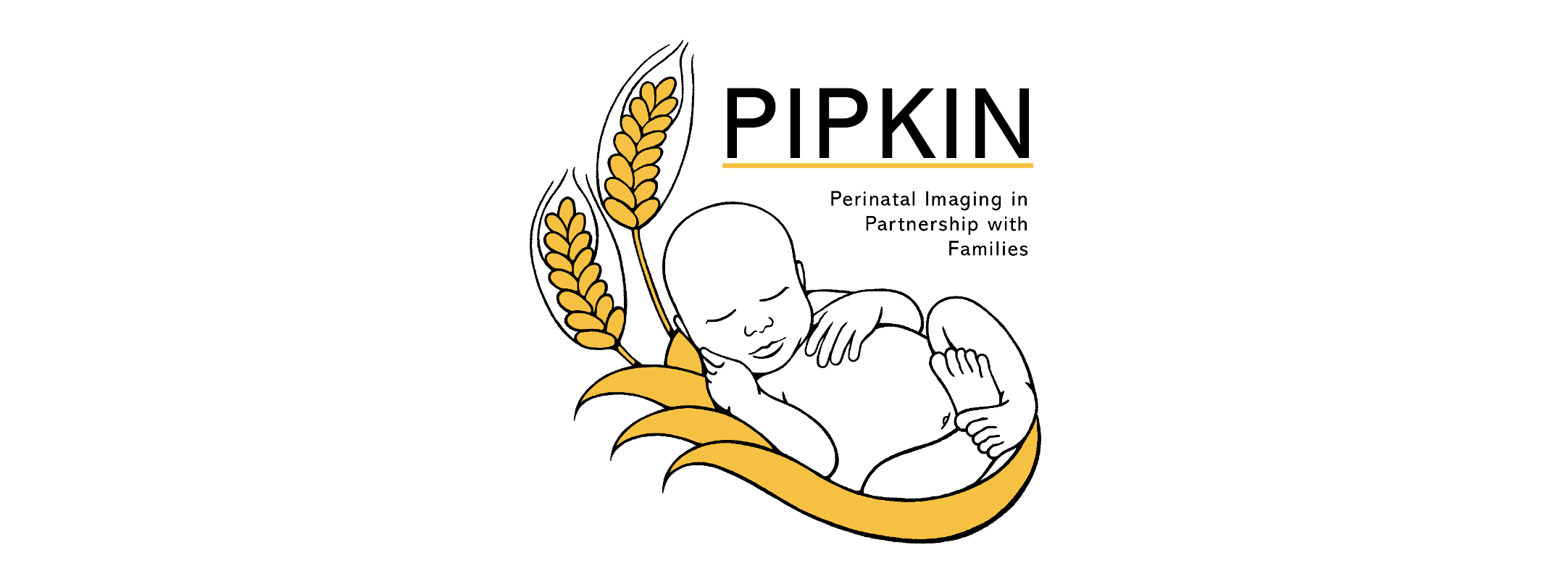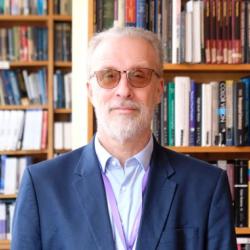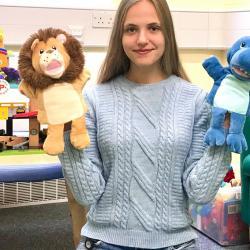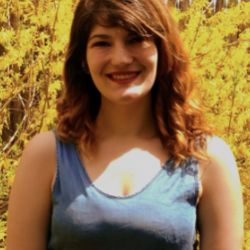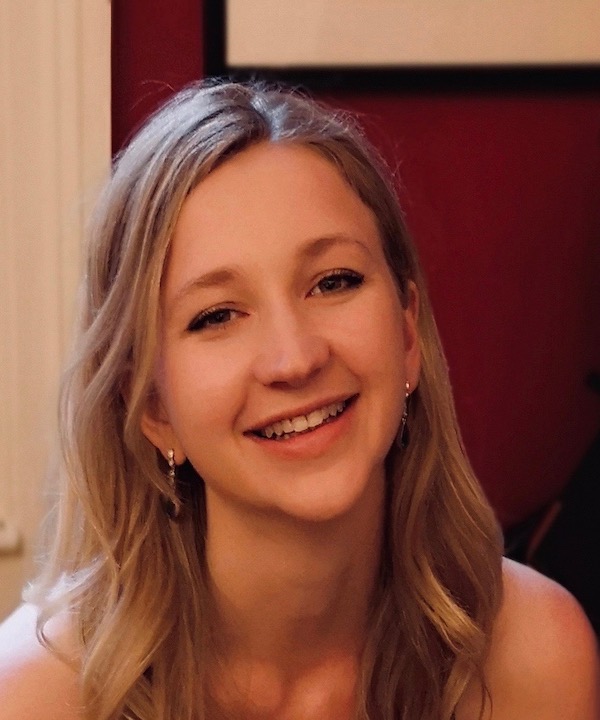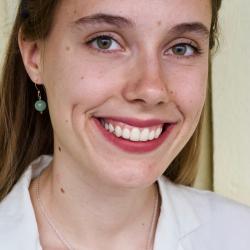Being born is one of the most dramatic of human experiences. The fetus moves from the protection and relative monotony of the mother’s womb into a world of sound, colour, touch, smell, and taste. Faces and voices are among the most prominent new experiences and this first taste of our social world triggers rapid changes in brain function over the first days, weeks and months of early life.
The aim of the PIPKIN project is to track infant development, particularly the development of brain mechanisms related to social interaction, from the third trimester of pregnancy to the first few months of the infants’ life, investigating how the infant’s brain is shaped by social interactions and the environment around the child. We will use ultrasound to study the infant in the womb, and neuroimaging techniques such as Functional Near Infrared Spectroscopy (fNIRS) and Electroencephalography (EEG) to track brain development over the first 6 months of life.
Research consistently shows an attainment gap between infants born into advantaged families, and those born into families where financial resources and educational opportunities are more limited. The project aims to study infants from a range of backgrounds in the hope that, in the longer term, we can use what we learn from this project to design family friendly interventions to ensure that infants from every walk of life have the best possible opportunity to develop to their full potential.
Principal Investigators
Lab Members
Professor Mark Johnson: The focus of my research is the study of functional brain development over the first years of life. The key questions that motivate my research concern how specialized cognitive functions emerge with particular brain regions (e.g. the cerebral cortex) during development. I am particularly interested in the development of the newborn social brain, specifically activity during face perception, eye-gaze perception and eye-gaze cued action, and the perception of human action. Through imaging (ERP, NIRS) and behavioural testing methods, my goal is to understand the typical and atypical development of the human social brain network.
Dr. Sarah Lloyd-Fox: I am interested in studying how infants' cognitive abilities develop over the first year of life. I primarily use a neuroimaging technique known as functional near infrared spectroscopy (fNIRS), and have pioneered its use with infants over the last ten years. Specifically my work focuses on the investigation of cortical responses to social cues and the application of fNIRS to the study of compromised development. The latter includes the study of infants at risk for autism, and recent work taking fNIRS to rural Africa to study undernutrition. I am also pursuing technical advances in the use of fNIRS with infants to improve the precision and reliability of cortical measurements.
Dr. Borja Blanco: As a PhD in cognitive neuroscience at the Basque Center on Cognition, Brain and Language (BCBL) my research focused on investigating the influence of early bilingual exposure on the development of resting-state functional connectivity and speech processing during the first months of life. A second major goal of my work has been applying advanced signal processing and analysis methods for developmental neuroimaging research (functional near-infrared spectroscopy, fNIRS & electroencephalography, EEG).
In PIPKIN, my interest will be on optimizing the application of a wearable fNIRS neuroimaging toolkit for monitoring early functional brain development in naturalistic setups. The diffusion optical tomography capabilities of the new fNIRS toolkit will allow us computing highly resolved 3D images of functional brain activity. In the context of this project, these capabilities will be utilized to target various neurocognitive domains, such as the development of the social brain, selective attention and functional connectivity.
Dr Kaili Clackson: My PhD focused on studying how language is processed in the brain, and how this develops during childhood. On becoming a mother I felt bombarded with conflicting information and opinions about parenting and had many unanswered questions about how babies develop, what they need, and how parents can best support them. This turned me towards studying infant development, and I have since worked on projects at the MRC Cognition and Brain Sciences Unit (CBU), the University of East London (UEL), and a number of projects here in the Department of Psychology in Cambridge. I am particularly interested in how infants’ and children’s development is influenced by their surroundings, and how small changes in the child’s experience of the world can lead to differences in their learning and development. I feel strongly that science can play an important role in teaching us about what our children really need to give them the best possible start in life.
Miss Dianna Ilyka: I graduated from the University of Warsaw (Poland) with my Master thesis focused on how five-month-old infants perceive audio-visual speech. It was during that time that I understood that working with babies is not only enjoyable but can be crucial in unravelling the mysteries of the most complex organ in human body – the brain.
I joined the Cambridge Babylab in October 2019 as a Marie-Sklodowska Curie Early Stage Researcher to pursue a doctoral degree, intending to investigate how social experiences following birth relate to infants’ development of brain mechanisms involved in the processing of social information.
The topic of the project fully reflects my research interests. Understanding how environment shapes the developing brain can be crucial in informing us about the most thriving conditions for babies’ growth and in establishing effective interventions for those who are particularly vulnerable. As part of my research, I am also interested in working with infant-friendly neuroimaging techniques such as functional near-infrared spectroscopy (fNIRS), and I hope to contribute to further optimization and use of these techniques in wider settings and with various populations.
Dr. Staci Meredith Weiss: I received my PhD from Temple University in Philadelphia, USA. My research, funded by the National Science Foundation graduate fellowship, investigated brain (EEG) and behavioral responses during attention to the body, in relation to individual differences across the infants, children and across contextual differences.
As a postdoctoral research associate with PIPkin, my interests lie in the development of the body schema, or how infants develop an awareness of the topographic arrangement of their bodies' features. I am especially interested in how babies' movements reflect their recognition that specific body parts have different sensory functions (mouth, eyes, etc.). I hope to understand how babies use what they know about their own bodies (even evident in the womb!) to explore their new, different world right after they are born.
Miss Isobel Greenhalgh: I am an ESRC funded doctoral student working on the PIPKIN project and collaborating with the Brazelton Centre. My main questions lie around how the prenatal world maps onto early postnatal developmental outcomes, and how factors such as maternal diet and the microbiome, within the context of socioeconomic status, can shape this development. I am particularly interested in how we can examine fetal behaviour using 4D ultrasound, and whether we can see continuity in these behaviours, and associated early neural markers, across birth and in early postnatal life. I am also working in a knowledge-exchange partnership with the Brazelton Centre, using their expertise with the Neonatal Behavioural Assessment Scale, in order to determine areas for support and to develop interventions for those most vulnerable to adverse outcomes.
Prior to starting my PhD I studied Neuroscience at the University of St Andrews (BSc) and then UCL for my MRes in Cognitive Neuroscience. Following this I worked as a research assistant for the University of Oxford in the Department of Experimental Psychology on a longitudinal study examining the early development of executive functions.
Miss Helena-Céline Arøe Stevelt: I studied psychology at the University of Copenhagen before coming to Cambridge for my MPhil in Psychology. My Bachelor’s project focused on brain functions underlying the emergence of infants’ ability to understand and predict others’ behaviour as goal-directed actions. I am very interested in how infants start to understand others as social agents, the underlying brain mechanisms supporting these abilities, and how this enables them to learn about the rich physical and social surroundings from adults.
Miss Noa Cohen: I received my B.A. in biological anthropology and general science with minors in neuroscience, chemistry, global health, and music at the University of Oregon. In my undergraduate, I researched the effect of electrical theta stimulation on cognition and smoking cessation; cognitive behavioral therapies to help adolescents with autism spectrum disorder; and I also studied Japanese Macaque male bonding at the Oregon National Primate Research Institute.
These three projects, albeit from different disciplines, all converged on my interest in researching how our environment impacts our cognition. As a master’s student with the BRIGHT project, my interests lie at the intersection of dietary patterns, linear growth, socioeconomic status, and cognitive development in infants from the Gambia. Ultimately, I hope to contribute to the growing body of research on the way adverse environmental factors influence infants’ growth and development.
Miss Yichen Jiang: I am an MPhil student at the Cambridge Babylab. My main interest is how social interactions in early infancy may affect brain development and possibly predict future brain functioning. Specifically, I would like to explore how parent-child interactions can combine with eye-tracking tasks that reflect infants’ social attention and looking behaviours.
I got my undergraduate degree in psychology from New York University, USA, and have had related research experiences in China. I believe researching in developmental science is crucial and meaningful to both typically- and atypically-developing children and their families.
Visiting Students
Miss Anna Saggin: I am a visiting student from the University of Padova, Italy and I am currently part of the PIPKIN project. I am particularly interested in Developmental Psychology, especially in the sensitive period of prenatal development and infancy, as well as how our social environment impacts the first months of our lives.
Miss Vera Aalbers: I am a visiting student from Utrecht University, the Netherlands, where I am an MPhil student of the programme Neuroscience & Cognition. Prior to this, I received my B.A. in English Language and Literature, specialised in psycholinguistics and cognition. My Bachelor’s project focused on foreign language learning acquisition in bilingual children. During the first part of my MPhil, I conducted a study at the Wilhelmina Children’s Hospital on associations between brain injury in extremely preterm infants determined by structural MRI and developmental outcomes at 2 and 5 years of age. Additionally, I investigated parental perceptions on neonatal brain MRI. Within the PIPKIN project, I am currently studying the relation between maternal mental health and infant temperament development within the context of the COVID-19 pandemic.

